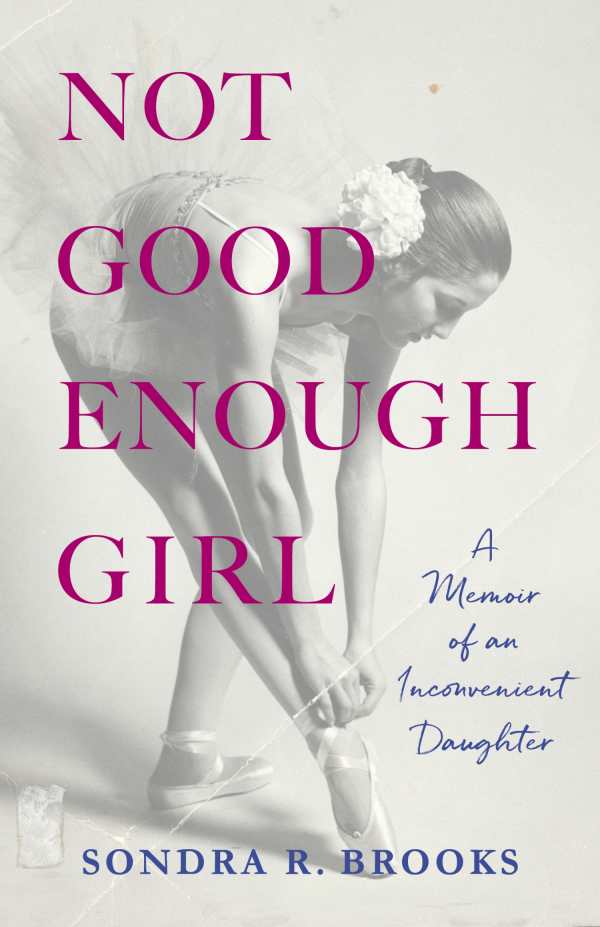Not Good Enough Girl
A Memoir of an Inconvenient Daughter
Not Good Enough Girl is a complex memoir about innocence interrupted.
Sondra R. Brooks’s riveting memoir Not Good Enough Girl is about family dysfunction, abuse, and addiction.
When Brooks was five, she began navigating her exposure to her mother’s affairs and serial marriages. Subjected to emotional parentification, she was her mother’s confidante and “accomplice,” often in attendance for her mother’s secret escapades. She teetered between her resentment toward her mother—who did not shield Brooks from her abusive stepfather—and affinity for her approval.
Brooks’s traumatic childhood manifested itself in her adulthood: She dealt with a broken marriage, extramarital affairs, recovery from substance abuse, and growing tensions with her mother. By way of therapy and Alcoholics Anonymous, she worked toward sobriety and healing. She was challenged to reexamine her relationship with her mother in the process and explored the complexities of severing a relationship that was once the center of her life.
The book’s “present recollections of experiences over time” are such that “some events have been compressed, and some dialogue has been re-created.” Its memories represent seismic surfacing and revision as they are processed and reprocessed, resulting in intimacy. And while the storytelling is chronological, its instances of introspection appear in a more unconventional style, with the voices of Brooks’s younger and present selves overlapping: the latter voice is delicate, and the former sharper and less forgiving. Light moments also factor in, as with an observation about her Aunt Lu: “She’d recently been married, but technically only for about an hour, to a man named Charles, whose face could well represent that of an oyster.”
Italicized thoughts interrupt the narration at times to air and validate feelings that could not be dealt with in the moment, as with “I wanted to scream that I was only thirteen years old, for god’s sake. Leave me be for a while. Give me time to somehow emerge from this convoluted mass of emotional hell.” Early stories are often resolved in later chapters, once the necessary context and family history has been processed, as with the revelation that Brooks’s mother experienced emotional neglect as a child, which impacted her own parenting choices. Still, although Brooks once held hope for “an untapped reserve of love and nurture” found within her mother, the book’s conclusions more reflect weary acceptance of faults in others that Brooks cannot herself fix: “I will not contort reality because it hurts my heart less to believe a lie.”
A complex memoir about innocence interrupted, Not Good Enough Girl articulates a struggle with a volatile mother-daughter relationship.
Reviewed by
Brooke Shannon
Disclosure: This article is not an endorsement, but a review. The publisher of this book provided free copies of the book and paid a small fee to have their book reviewed by a professional reviewer. Foreword Reviews and Clarion Reviews make no guarantee that the publisher will receive a positive review. Foreword Magazine, Inc. is disclosing this in accordance with the Federal Trade Commission’s 16 CFR, Part 255.

